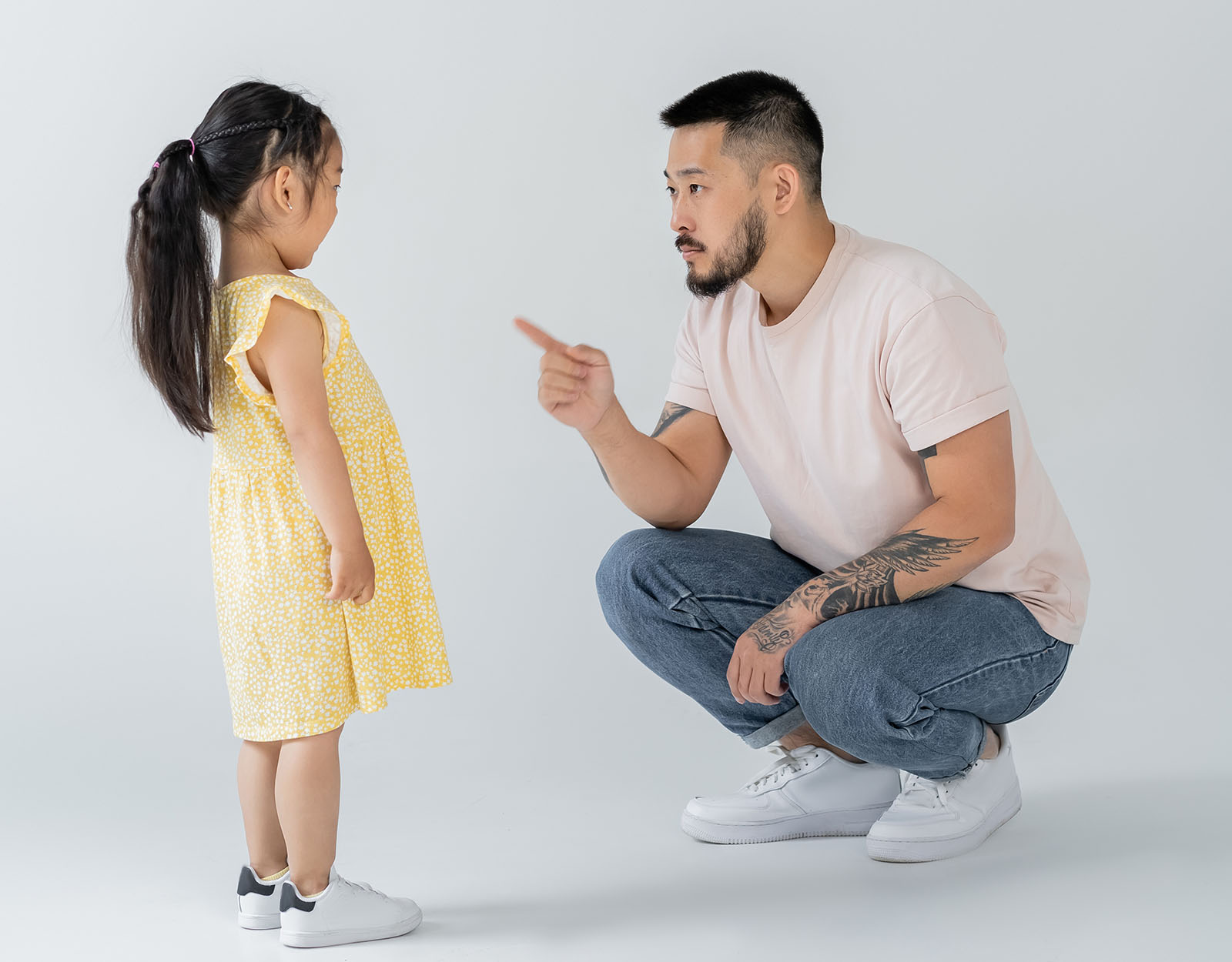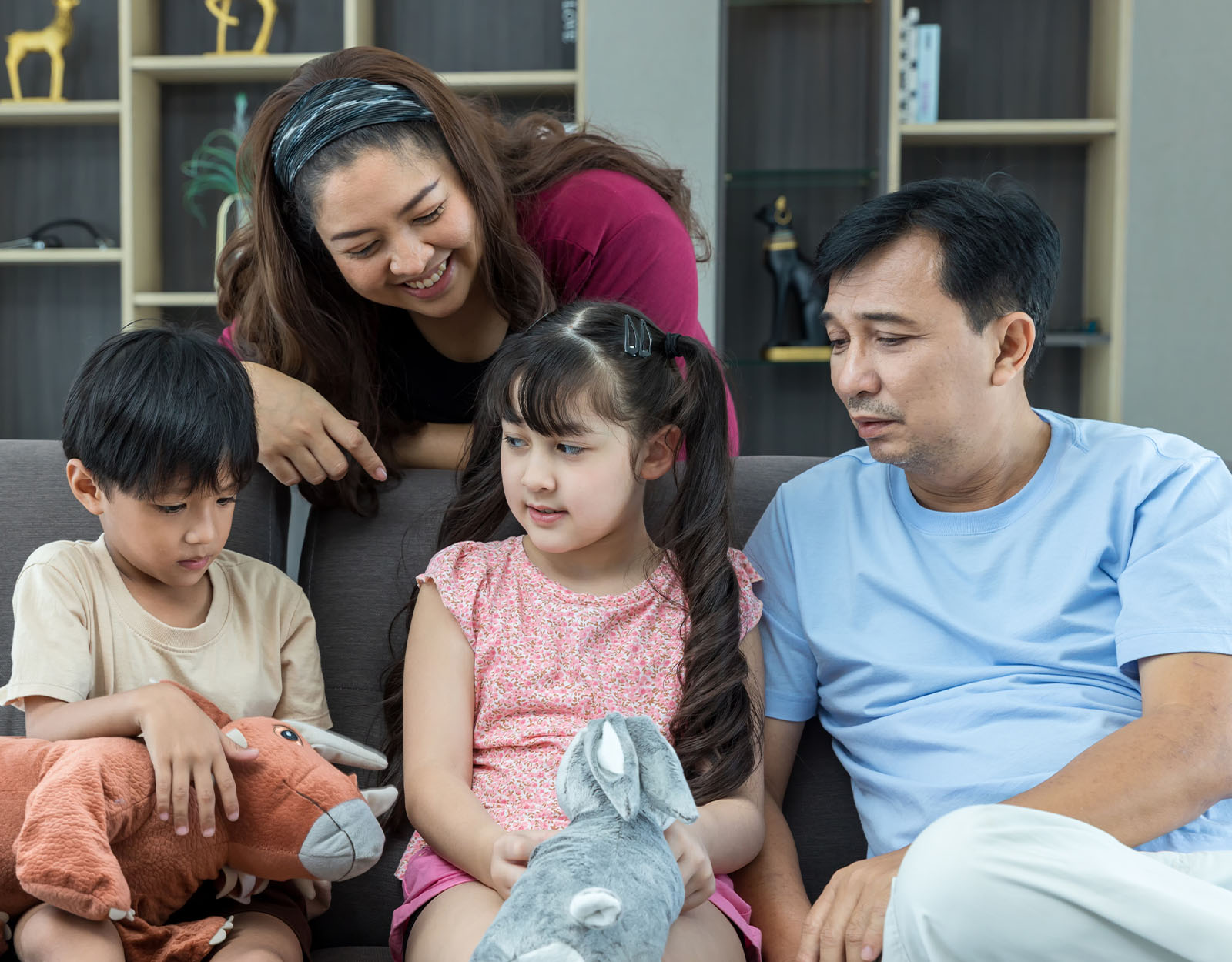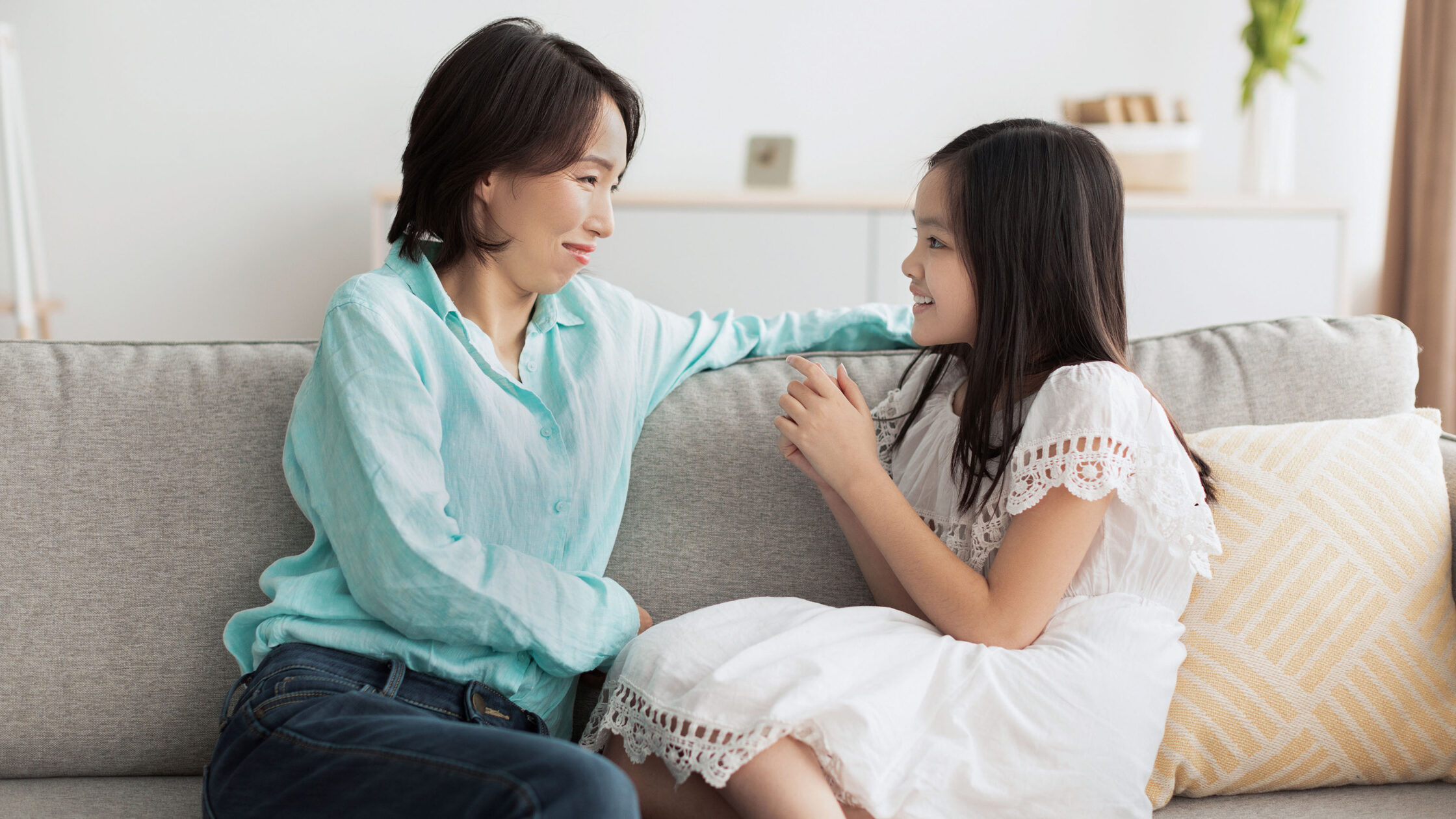Role Reversal: When Children “Raise” Their Parents
Parents can indeed learn from their children and vice-versa, but there have been cases when children have had to “raise” their parents.
While it’s good to involve the kids when doing household chores to teach them invaluable life skills, it’s different when parents start relying on them to do things that they should be doing in the first place. Instances include unleashing bottled-up frustrations onto their children, making them the main breadwinner, or even turning them into the family’s “peacekeepers.”
In the hustle and bustle of life, parents forget that children don’t know much about these things, nor should they be burdened with responsibilities outside their scope.
What defines a parent?
Parents have different parenting styles—that much is certain. But none of them fully encompass what “parenting” is in general.
Most traditional definitions focus on the more material side of it. A good parent, back in the day, was someone who could financially support their children. Maintaining a roof over their head, putting food on the table, and finally, enrolling them into a good school and ensuring they graduate—that was how some parents defined “parenting” in the past.
However, parenting is multi-faceted. There are many aspects to consider as a parent. While financial stability solves 80% of families’ issues, the remaining 20% requires some mental and emotional gymnastics. But because mental health wasn’t a well-developed or researched field back in the day, families built their home’s hierarchy on power. It was a home built on unwavering obedience.
Unfortunately, that’s where it all starts.
When the child becomes the parents’ pillar
There’s a difference between taking inspiration from kids and leaning on kids for support—be it mentally or emotionally. While both situations put children on a pedestal, the latter usually has them actively handling situations they aren’t supposed to.
In some cases, kids have had to even contribute to the family’s income, especially when debts climb high.
However, many parents won’t admit to relying on their kids as their emotional support—almost to the point of turning them into an in-house therapist. When frustrated with their partner, their aging parents, their in-laws, or just about anything and anyone in general, they rant about it to their kids. These instances usually happen when it’s just the parent and the child, like during rides home from school or work.
While some do this to inform the child about what’s going on, others do so because they feel “powerless” and “isolated” in their frustration. Even more so when their partner is the opposing force, one parent will look for a comrade (kakampi) in their child. And they find that kind of support in the child they identify most with.
There’s also a slight possibility that they are also aware that the child also has a strained relationship with their partner and use that to their advantage.

It’s an endless cycle between a parent and child.
But this kind of behavior doesn’t just happen out of the blue. It usually comes out when people become parents themselves. After leaving their home, they experience a sense of relief, since they no longer have to manage their parents. However, like all unprocessed feelings, certain conditions can trigger them.
When kids who have matured too early now have kids of their own, the behavior is mirrored. When distressed, it’s their turn to seek comfort in their children. If their partner refuses to be available for them or is emotionally unavailable, the kids become the next target.
But what does a kid know? Should the child speak up, it usually leads to gaslighting and guilt-tripping. Parents, in their overwhelming anxiety, say things like, “Well, I’m sorry for troubling you!” or “I would drop everything for you! Why can’t you?”
Conversely, if the child remains silent, they would goad them to answer with statements like “Answer me!” (“Sumagot ka nga!”), which is then treated as disrespect when the child does answer.
That unfortunately doesn’t leave many options for the child. Given these circumstances, they can only figure out what their parents want to hear and parrot that to them. At the same time, they eventually realize that their parents are emotionally unavailable to them, so they learn to bottle things up.
The science behind the role reversal
The role reversal between child and parent is also known as parentification, wherein “the child excessively cares and actively answers the needs of the parent” (Mayseless, Bartholomew, Henderson, and Trinke, 2004; Macfie, Houts, Pressel, and Cox, 2008). Usually, the needs that these kids answer are the parents’ emotional needs.
Role reversal usually shows a strong and disturbing level of co-dependence between a parent and child. The parents believe they cannot last without their kids. The kids, in turn, also learn this because of the emotional validation they get from being their parent’s “parent” (Zeenah and Klitzke, 1991; Borchet, Lewandowska-Walter, Polomski, Peplinska and, Hooper; 2020).
There’s a usual narrative for parents who end up reversing the roles. They usually come from dysfunctional homes—often filled with messy divorce proceedings and violence. They are also constant witnesses or collateral damages to a turbulent marriage (Mayseless, et. al, 2004; Eskisu, 2021). Likewise, the loss of a partner or death in the family can also be one of the starting points of role reversal (Macfie et. al, 2008).
What happens to the kids who go through this?
Because the children who grew up in role reversal are always soothing their parents, they are usually the ones who express “empathy” better than anyone else. It usually shows up also in the friend group wherein there’s always that designated “mom friend.” They make sure that their group of friends is always well taken care of because they are their “family.”
Because of this, they have a specific skill set that helps them “protect” everyone’s emotional health.
- Being emotionally attentive to anyone and everything. They are the ones who know how to “read the room” better than anyone else. These kids spent all their years honing that ability to either diffuse problems or to “catch” their parents to prevent meltdowns or emotional issues at home. We often praise this skill as a sign of being “mature.”
- They have a skill set that complements what the parents lack. When they see that their parents lack a certain skill, which can lead to the home being a mess (figuratively and literally), they develop that skill on purpose to fix the issue. If the parents are emotionally unavailable for each other, the kid takes over the role of the “willing ear.”
- The ability to figure out needs even if they’re not communicated. They are the masters of “reading between the lines” because they have had to figure it out from their parents who lacked the skills to communicate these issues. Some may even see them as telepaths but in reality, these kids just had too much experience.
However, these children also have a particular personality. Those who suffered from role reversal follow three patterns which Mayseless, Bartholomew, Henderson, and Trinke (2004) named: the guardians or protectors, the compliants or the pleasers, and the spousified—wherein the parent makes the child “replace their partners” to fulfill the duty their partner failed to do.

The Profiles: The Protectors, The Pleasers, The Spouses, and The Numb
Because their parents had different needs, these kids have developed strategies to address them accordingly. Depending on how the role reversal played out, these children rely on different rationales to understand the meaning of their relationships for when they become parents as well.
The Protectors
The protectors are the kids who grow up into adults who can protect others, but not themselves. Their story features two parents who are fighting against each other, thus imposing on these kids a sense of responsibility to “protect” the aggrieved parent and the sibling from the distress.
Simply put, they willingly take on the responsibilities of processing emotions and solving issues because they are praised for it and because it is needed.
But when they fail, these children are also usually punished—especially when they are unable to appropriately deal with their parents’ distress. When they see their parents taking out their frustration on their siblings, they blame themselves for not being able to handle it.
Thus, like most kids who suffer from role reversal, they cannot advocate for themselves. But that’s because they believe that doing so means giving up their ability to protect others, or in this case, their parent.
The Pleasers
These are the kids who are stuck in an emotional battle wherein they are loving and caring towards others, but constantly push themselves to do more because it’s never good enough. This is especially common among kids who grew up with parents who rarely or inconsistently gave them affirmation or love but instead, demanded that from them.
It was a one-way street, leaving the children uncared for.
As these kids grow older, they are highly doting, but do this all in hopes of receiving the same love and affirmation they are capable of giving. However, when it does happen, they are quick to “deflect” it because they grew up with the idea that they are not worthy of it.
The Numb
When the house is always in emotional dysfunction, the children adjust accordingly. Similar to a soldier on the battlefield, they are always ready to respond to emotional distress because it’s the “right thing to do” or “it’s their duty.” But the caveat is that they feel no pleasure in emotionally validating or taking care of a person nor, do they hate it. To them, answering emotional distress is just their job.
However, this doesn’t mean they lack expression. Sometimes, they are even the most expressive people. But a lot of times, we can’t tell if that’s authentic or if they’re just doing so to prevent any further emotional distress.
The Spouses
As one of the more extreme role reversals, this is when a parent feels that their partner is emotionally and sexually unavailable to them. Thus, they turn to the children. However, their origin story can have elements of sexual abuse as a child, wherein the rapist was a lot closer to home.
When these kids grow up, they become adults who rely on sex to validate them emotionally. Usually, sex is held in such a high regard for them—that denying sex can trigger anxiety and cause them to lash out.

Can we reverse the damage from this emotional abuse?
With a lot of therapy and empathy, children who suffer from role reversal can live emotionally healthy lives. But it takes a psychologist or psychiatrist who subscribes to Freud’s school of thought: Psychoanalysis.
These approaches often tackle childhood traumas that lie in our subconscious. And since we can’t call that pain up on command; there’s a specific approach that pulls out that trauma.
What’s the usual one common in Filipino families?
The usual and commonly heard role reversal story in Filipino families is either the protector or the pleaser. As the protector, the children shield the parents from emotional distress by playing the mediator for their marital issues. They become the “willing ear” when parents are frustrated with their partner. The ones who take on this archetype are the eldest children or the ones whom parents feel respond the most appropriately.
The pleaser is another common profile because Asian parenting doesn’t usually show affirmation or physical affection as a love language. It’s usually in the form of gifts, which don’t always communicate intentions properly. Thus, some of us who grew up like this will think that our parents didn’t care. They did; they just didn’t know how to communicate it properly.
But this is not to say that spousified ones don’t happen. We usually don’t hear about it because the victim is often silenced to preserve the family’s image and reputation.
But this doesn’t mean we can’t make mistakes.
Parents have to face the reality that we’re human and that they will make mistakes — big, small, or possibly catastrophic. There will be days that they may end up leaning on their children for support. But that’s only a temporary measure. Because, at the end of the day, it’s their job as parents to show how to care for another person.
And for the children who experienced a “role reversal,” we understand why you don’t want to be parents yourselves. You’ve spent most of your childhood being the parent—even if it was beyond your capabilities.
But should the day come when you do become parents, remember that there’s always a village to help out. Even if the helpers are not your blood relatives.
References
Borchet, J., Lewandowska-Walter, A., Połomski, P., Peplińska, A., & Hooper, L. M. (2020). We are in this together: Retrospective parentification, sibling relationships, and self-esteem. Journal of Child and Family Studies, 29, 2982-2991.
Borchet, J., Lewandowska-Walter, A., Połomski, P., & Peplińska, A. (2020). Construction of a parentification questionnaire for youth. Health Psychology Report, 8(2), 175-188.
Eskisu, M. (2021). The Role of Proactive Personality in the Relationship among Parentification, Psychological Resilience and Psychological Well-Being. International Online Journal of Education and Teaching, 8(2), 797-813.
Macfie, J., Houts, R. M., Pressel, A. S., & Cox, M. J. (2008). Pathways from infant exposure to marital conflict to parent–toddler role reversal. Infant Mental Health Journal: Official Publication of The World Association for Infant Mental Health, 29(4), 297-319.
Mayseless, O., Bartholomew, K., Henderson, A., & Trinke, S. (2004). “I was more her mom than she was mine:” Role reversal in a community sample. Family relations, 53(1), 78-86.
Zeanah, C. H., & Klitzke, M. (1991). Role reversal and the self-effacing solution: Observations from infant-parent psychotherapy. Psychiatry, 54(4), 346-357.
More about dealing with trauma?
Trishka Puno Samonte: A Mom’s Fight Against APAS and Birth Trauma
Breaking the Cycle of Generational Trauma and Toxic Patterns
Maxene Magalona Gets Real About Childhood Trauma and Its Effects on Adulthood









